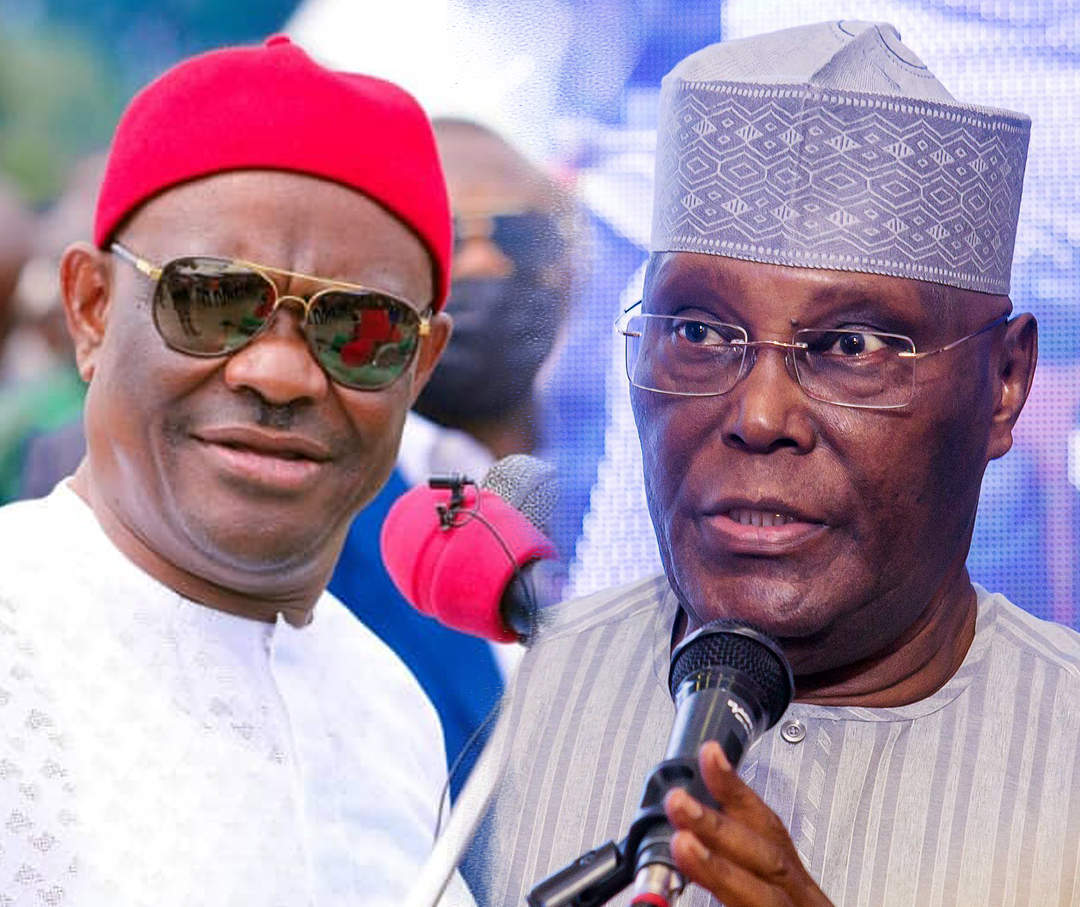Former Vice President Atiku Abubakar has opened up on the reasons behind his decision not to choose former Rivers State Governor, Nyesom Wike, as his running mate for the 2023 presidential election.
Wike, who contested the Peoples Democratic Party (PDP) presidential ticket against Atiku, was widely expected to be selected as his deputy after losing the party’s primary.
However, Atiku opted for former Delta State Governor, Ifeanyi Okowa, a move that many believe ignited the ongoing rift between him and Wike, who now serves as the Minister of the Federal Capital Territory (FCT).
In a yet-to-be-aired interview on the television program Untold Stories with Adesuwa Giwa-Osagie, scheduled for broadcast today, Wednesday, Atiku addressed the issue, recalling how he was previously criticized for not consulting widely before selecting former Anambra State Governor, Peter Obi, as his running mate in the 2019 presidential election.
“They said I did not consult with the party enough. So in 2023, I threw the whole thing to the party. I said, ‘Okay, set up a committee and recommend three people for me to pick as a running mate,’” Atiku revealed.
READ ALSO: Atiku expresses uncertainty over 2027 presidential ambition
According to the former VP, the committee tasked with selecting his running mate submitted three names: Ifeanyi Okowa as the first choice, Nyesom Wike as the second and former Akwa Ibom State Governor, Udom Emmanuel, as the third.
“So I picked number one,” Atiku stated, emphasizing that his decision was strictly based on the committee’s ranking of candidates, and not due to personal bias against Wike.
Despite the ongoing political tension between him and Wike, Atiku made it clear that he has no regrets over his choice.
“No, not at all,” he affirmed when asked if he had any regrets about not selecting Wike as his running mate.
Atiku, who has contested the presidency a record six times, remains a key figure in Nigerian politics.
His revelations shed light on the internal party dynamics that shaped the PDP’s 2023 election strategy and continue to influence its political landscape today.

 Football6 days ago
Football6 days ago
 Entertainment5 days ago
Entertainment5 days ago
 Football7 days ago
Football7 days ago
 Business4 days ago
Business4 days ago
 Football7 days ago
Football7 days ago
 Football5 days ago
Football5 days ago
 Crime6 days ago
Crime6 days ago
 Health5 days ago
Health5 days ago

